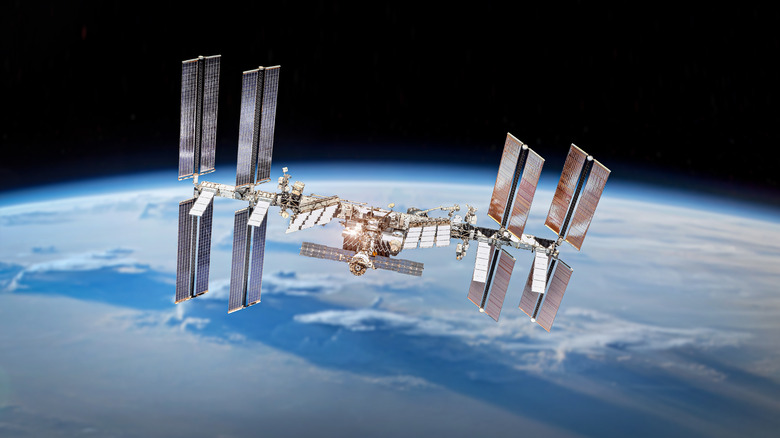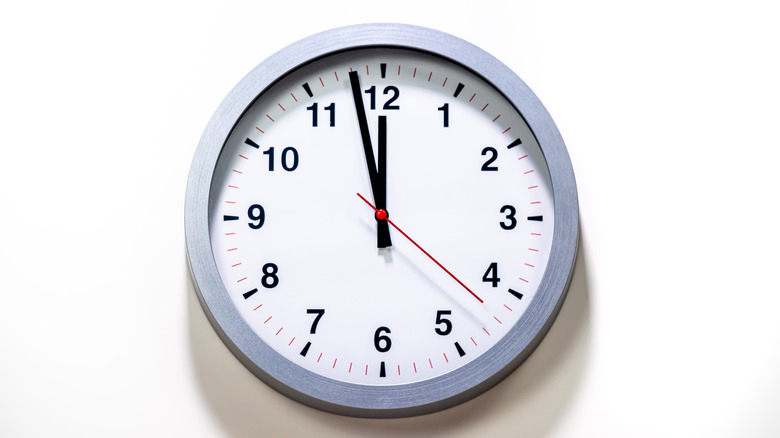The Surprising Reason People Could Age Slower In Space
While their delivery is often used to determine which is "older," identical twins age at exactly the same rate on account of coming from the same egg (as opposed to fraternal twins, where different eggs are typically fertilized at different times). But this might not be the case for astronauts and identical twins Mark and Scott Kelly. According to NASA, Scott, who spent a year in the International Space Station versus his brother's 54 days, experienced a subtle yet noticeable genetic change.
Observations revealed that Scott's chromosomes were not shortening at a normal rate, indicating that at a genetic level, he was technically aging at a very slightly slower rate than he would have on Earth (via Business Insider). While much of the short-term distortion disappeared soon after his return to Earth, and any long-term effects are seemingly minimal, the question of why remains. As it turns out, gravity is not only the culprit behind this phenomenon, and it is not limited to space.
Time dilation can even distort synchronized atomic clocks
Per Albert Einstein's research, time is theorized to be regularly altered by the gravitational pull of matter. Time dilation affects all things depending on their distance from a body's center of mass. According to the Hafele-Keating experiment, even the precision of atomic clocks can be distorted by this effect. In the study, clocks were placed aboard separate airliners and flown around the world. Upon their return, it was found that both clocks — despite having initially been in sync — were running at separate speeds after traveling at varying altitudes (via The Vintage News).
Practically, the difference made by time dilation is not noticeable outside of using time-keeping devices to record its effects. Yet, the fact that it does technically exist and is measurable can have drastic consequences for how science progresses (i.e. the need for GPS software to compensate for it, per The Science Explorer). If in the future, astronauts begin to spend longer periods of time in space, the effects of time dilation may lead to more substantial changes in how they perceive time (via Scientific American).

